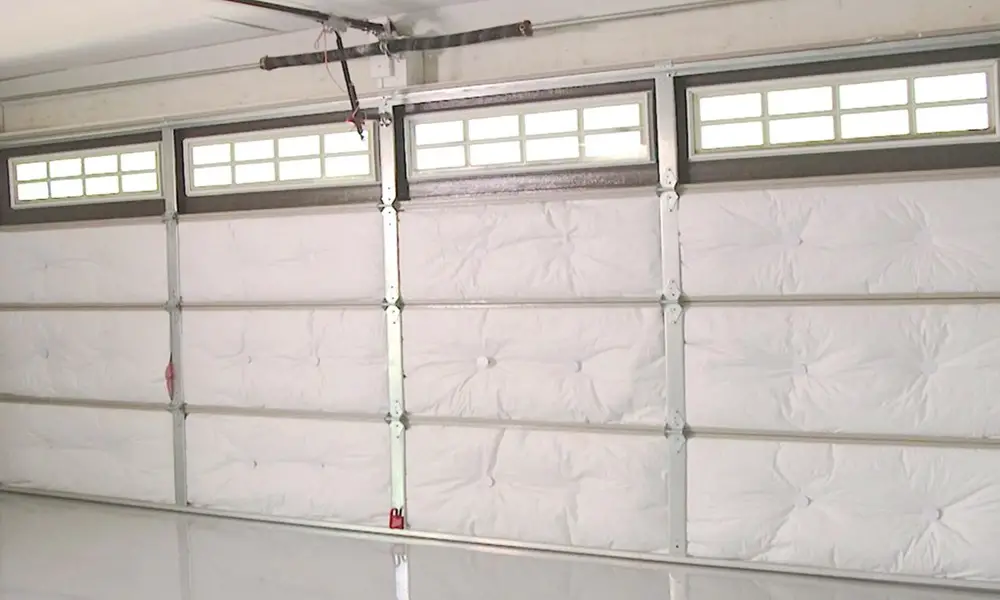When it comes to the insulation of garage door, understanding the R-value is paramount. The R-value measures the thermal resistance of the door, indicating how well it insulates against heat transfer. But is a 6.5 R-value sufficient for your garage door? Let’s explore.
Importance of Insulation in Garages

Before delving into specific R-values, it’s essential to grasp the significance of insulation in garage doors. Garages serve various purposes beyond just parking vehicles. They often house valuable items, serve as workshops, or provide additional storage space. Proper insulation ensures that the interior temperature remains regulated, protecting your belongings and providing a comfortable environment.
Detached vs. Attached Garages
The insulation requirements differ based on whether your garage is detached or attached to your home. Detached garages, which are not actively heated or cooled, have different insulation needs compared to attached ones.
Detached Garages
For detached garages that aren’t actively heated or cooled, an R-value between 0 and 6 is typically deemed sufficient. This range provides basic insulation to help regulate temperatures within the garage.
However, if you’ve chosen to insulate and heat your detached garage, it’s advisable to aim for a higher R-value of at least 10 for the garage door. This increased insulation helps to maintain a comfortable temperature inside the garage, particularly during colder months, and prevents excessive heat loss.
Attached Garages
Attached garages, which share a wall with the main living spaces of the house, have slightly different insulation requirements. For these garages, an R-value ranging between 6 and 9 is ideal. This range offers adequate insulation to minimize heat transfer between the garage and the adjacent living areas.
By ensuring proper insulation, you can enhance energy efficiency and maintain consistent temperatures throughout the home.
Actively Cooled or Heated Garages
If your garage is actively cooled or heated, such as for use as a workshop or recreational space, opting for a garage door with a higher R-value becomes crucial. In this scenario, it’s recommended to choose a garage door with an R-value of 13 or above.
By selecting a door with superior insulation capabilities, you can effectively conserve energy and ensure a stable indoor climate within the garage. This is especially important for maintaining comfortable working conditions and minimizing energy costs associated with heating or cooling the space.
Polyurethane Insulation: A Superior Choice
When considering insulation materials for your garage door, polyurethane stands out as a superior choice. Unlike traditional materials, polyurethane insulation offers exceptional thermal resistance, boasting an R-value ranging from 5.5 to 6.5 per inch of thickness. This high R-value ensures superior insulation performance, making it an ideal solution for energy-efficient garage doors.
Conclusion
While a 6.5 R-value is respectable for garage door insulation, it’s essential to consider various factors such as garage type, usage, and insulation materials. Opting for higher R-values, especially with superior insulation materials like polyurethane, can significantly enhance the energy efficiency and comfort of your garage space.
FAQs
What is R-value, and why is it essential for garage doors?
The R-value measures the thermal resistance of a material, indicating how well it insulates against heat transfer. For garage doors, a higher R-value signifies better insulation, crucial for maintaining temperature and energy efficiency.
Does garage door insulation impact energy costs?
Yes, proper insulation can significantly impact energy costs by reducing heat transfer, thus lowering the need for heating or cooling within the garage space.
Are there benefits to insulating a detached garage?
Absolutely. Insulating a detached garage not only protects stored items but also provides a comfortable workspace and helps maintain the structural integrity of the building.
How does the material of the garage door affect insulation?
Garage doors made of thin metal materials like steel or fiberglass allow heat to transfer easily. Insulating such doors becomes imperative to regulate temperature and improve energy efficiency.
Is polyurethane insulation worth the investment for garage doors?
Yes, polyurethane insulation offers superior thermal resistance compared to traditional materials, making it an excellent investment for energy-efficient and well-insulated garage doors.


